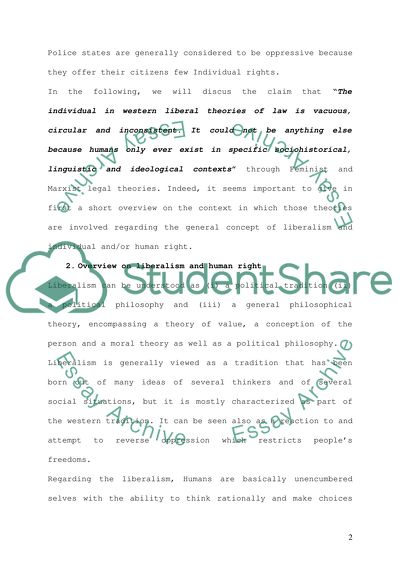Cite this document
(Liberalism, Feminist and Marxist Legal Theories Coursework, n.d.)
Liberalism, Feminist and Marxist Legal Theories Coursework. Retrieved from https://studentshare.org/law/1535095-the-individual-in-western-liberal-theories-of-law-is-vacuous-circular-and-inconsistent-it-could-not-be-anything-else-because-humans-only-ever-exist-in-specif
Liberalism, Feminist and Marxist Legal Theories Coursework. Retrieved from https://studentshare.org/law/1535095-the-individual-in-western-liberal-theories-of-law-is-vacuous-circular-and-inconsistent-it-could-not-be-anything-else-because-humans-only-ever-exist-in-specif
(Liberalism, Feminist and Marxist Legal Theories Coursework)
Liberalism, Feminist and Marxist Legal Theories Coursework. https://studentshare.org/law/1535095-the-individual-in-western-liberal-theories-of-law-is-vacuous-circular-and-inconsistent-it-could-not-be-anything-else-because-humans-only-ever-exist-in-specif.
Liberalism, Feminist and Marxist Legal Theories Coursework. https://studentshare.org/law/1535095-the-individual-in-western-liberal-theories-of-law-is-vacuous-circular-and-inconsistent-it-could-not-be-anything-else-because-humans-only-ever-exist-in-specif.
“Liberalism, Feminist and Marxist Legal Theories Coursework”, n.d. https://studentshare.org/law/1535095-the-individual-in-western-liberal-theories-of-law-is-vacuous-circular-and-inconsistent-it-could-not-be-anything-else-because-humans-only-ever-exist-in-specif.


